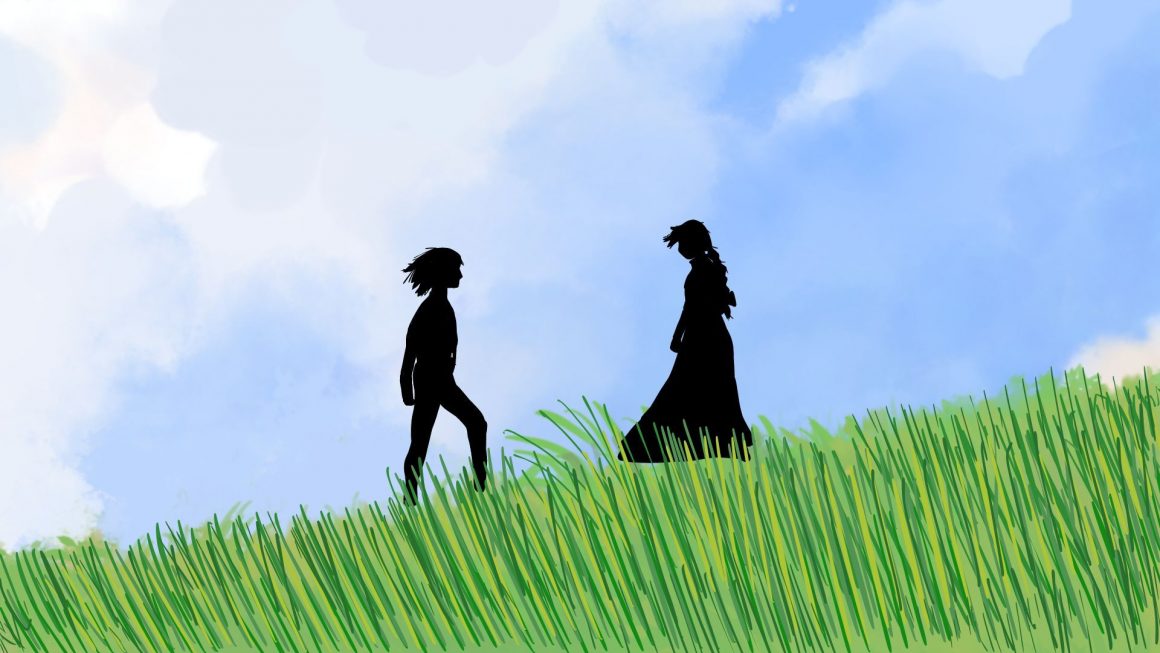
Movie Review: Howl’s Moving Castle
By Kshef Kamran, August 23 2024—
Studio Ghibli released Howl’s Moving Castle 20 years ago, loosely based on the novel Howl’s Moving Castle by Diana Wynne Jones. The movie follows an 18-year-old girl named Sophie who is cursed and is entangled in a world of witchcraft and magic.
The story follows our protagonist Sophie, a humble and warm-hearted hat maker who is an elder sibling working at her father’s hat shop. Although Sophie does not want to live her entire life as a hat maker, her belief that it is ‘better here than there’ is a perspective that many introverts can relate to. One day she meets the Witch of the Waste, who casts a magic spell on her that traps her into a 90 year old woman’s body. Sophie journeys to find a magician to break the curse that has been put on her, during which she meets Howl Pendragon, a talented magician who uses his magic in an attempt to run away from his problems and is rumored to be a consumer of hearts.
Much of the movie revolves around a war-stricken country. The battle in the film is Miyazaki symbolizing the invasion of Iraq by America. Interwoven within the film are a number of symbols and metaphors. One is the scene where Sophie and Howl are walking on air in the beginning of the movie. The idea of “walking on air” is having the freedom to do what makes you happy, which is a feeling that is similar in both Sophie and Howl who lack freedom due to their obligations. Howl’s castle, a combination of moving bricks, and exhaling pipes, is one of the primary symbols of the film. The castle is constantly moving, which represents the unsettled nature of Howl’s feelings due to his constant emphasis on one’s outward appearance and beauty. Sophie’s curse is a metaphor of her emotional and mental maturity for her young age, and her alienation from others her age. However, just as the castle depicts Howl’s instability, it represents a warm place of belonging for Sophie, who has been neglected and lacks a feeling of belonging.
Sophie has a constant internal conflict where she has feelings of inadequacy. In the film when Howl’s hair changes colors due to Sophie accidentally mixing his potions, he throws a tantrum saying, “I see no point in living if I can’t be beautiful,” to which Sophie says, “I’ve never once been beautiful in my entire life.” Throughout the film despite Sophie’s curse, she does turn back into her younger self, however she is only able to do so when she is confident and advocating for herself and what she loves. The theme of love for both oneself and between Howl and Sophie is emphasized through Howl’s development from cowardice to courage, from running away to fighting for what’s important.
Among all of the symbols the most repetitive is the use of the heart. Howl had given his heart to Calcifer, a fire demon that controls Howl’s castle, in an exchange for magic. Rather than consuming hearts as the rumors presume, Howl breaks them — he pursued the Witch of the Waste under the assumption that she was beautiful. In the end Sophie breaks the agreement and returns Howl’s heart to him breaking the curse on them all. The final and infamous line of the film where Calcifer returns to him is when Sophie says, “a heart’s a heavy burden.” Sophie learns to love herself for who she is and Howl no longer superficially judges others but rather looks to what is more important, ending with the blossoming relationship between the two.
Howl’s Moving Castle is a beautiful movie revolving around love, belonging, courage and beauty. It encapsulates what it means to love yourself as well as enjoying the small joys that life has to offer in an enchanting manner. The most important moral from this riveting film is the emphasis on true beauty and what that means for yourself and for others.
